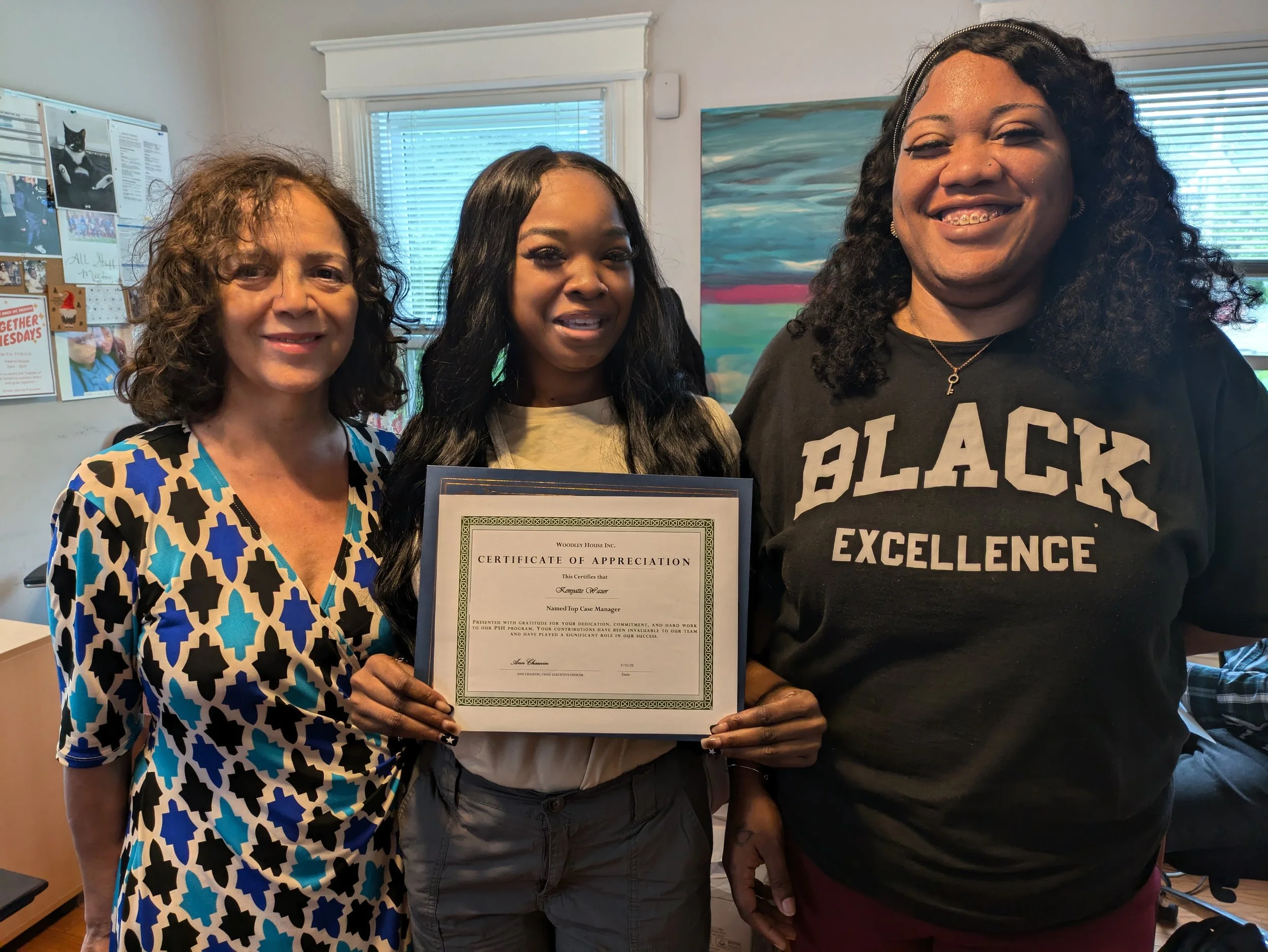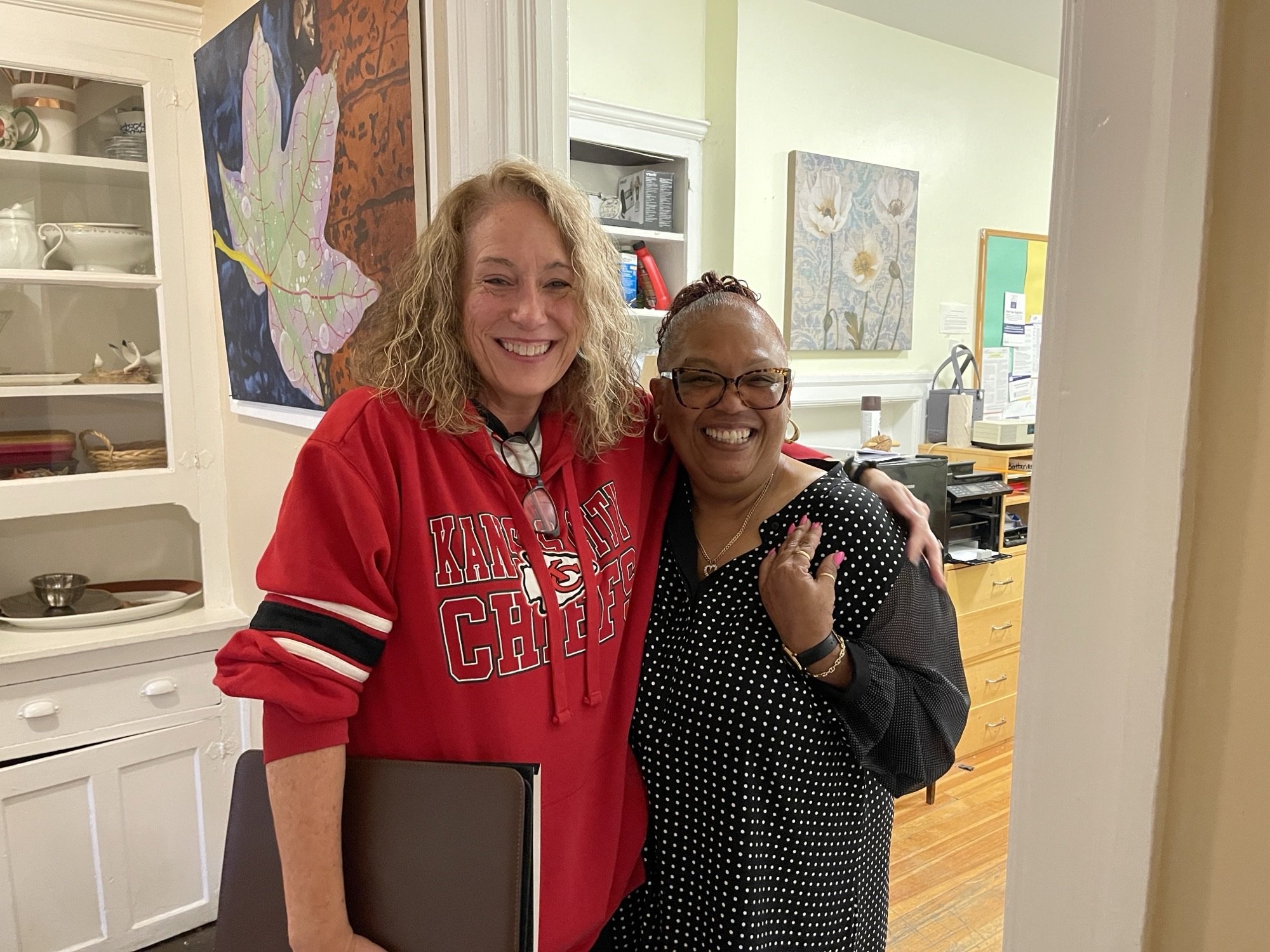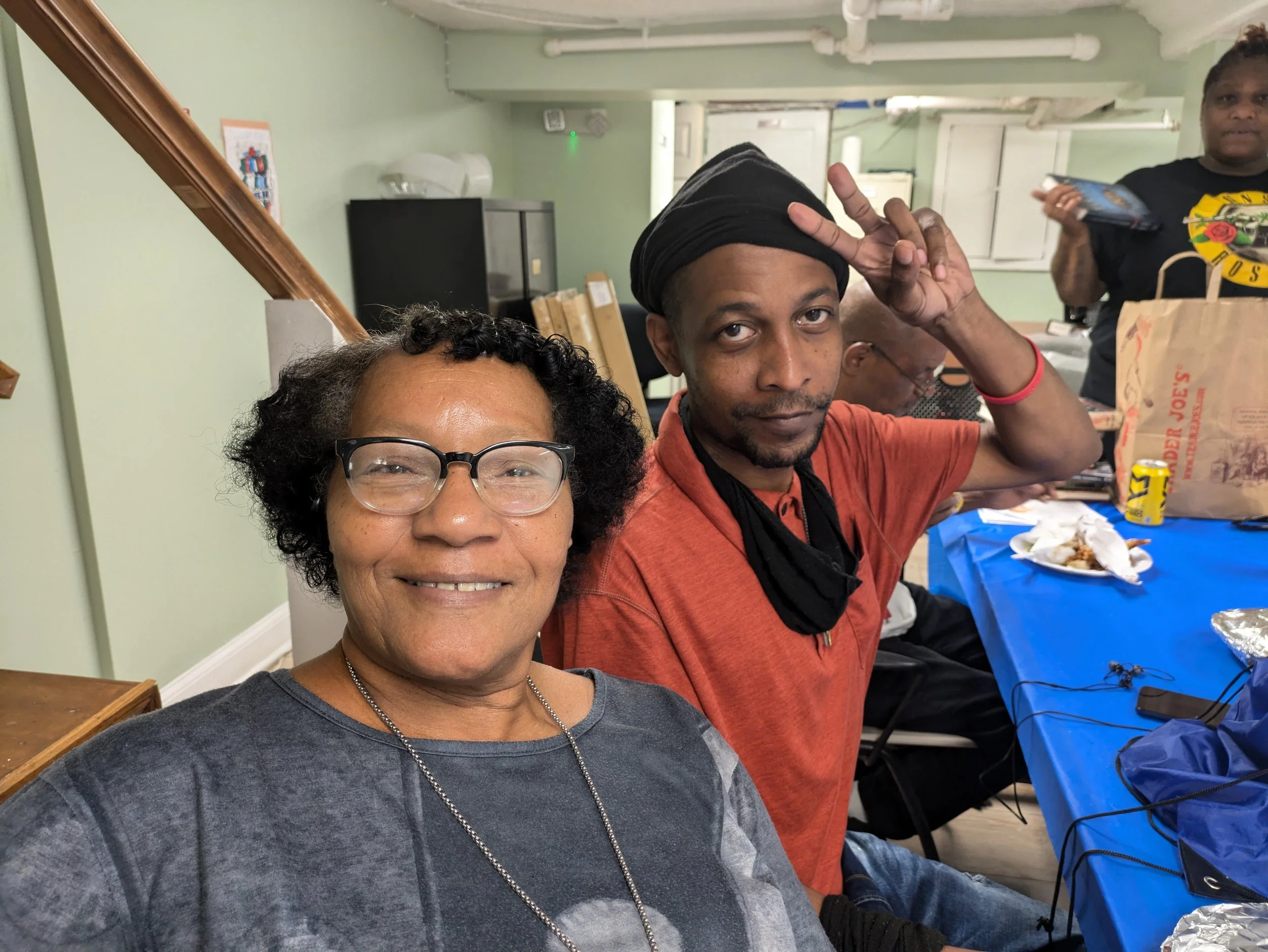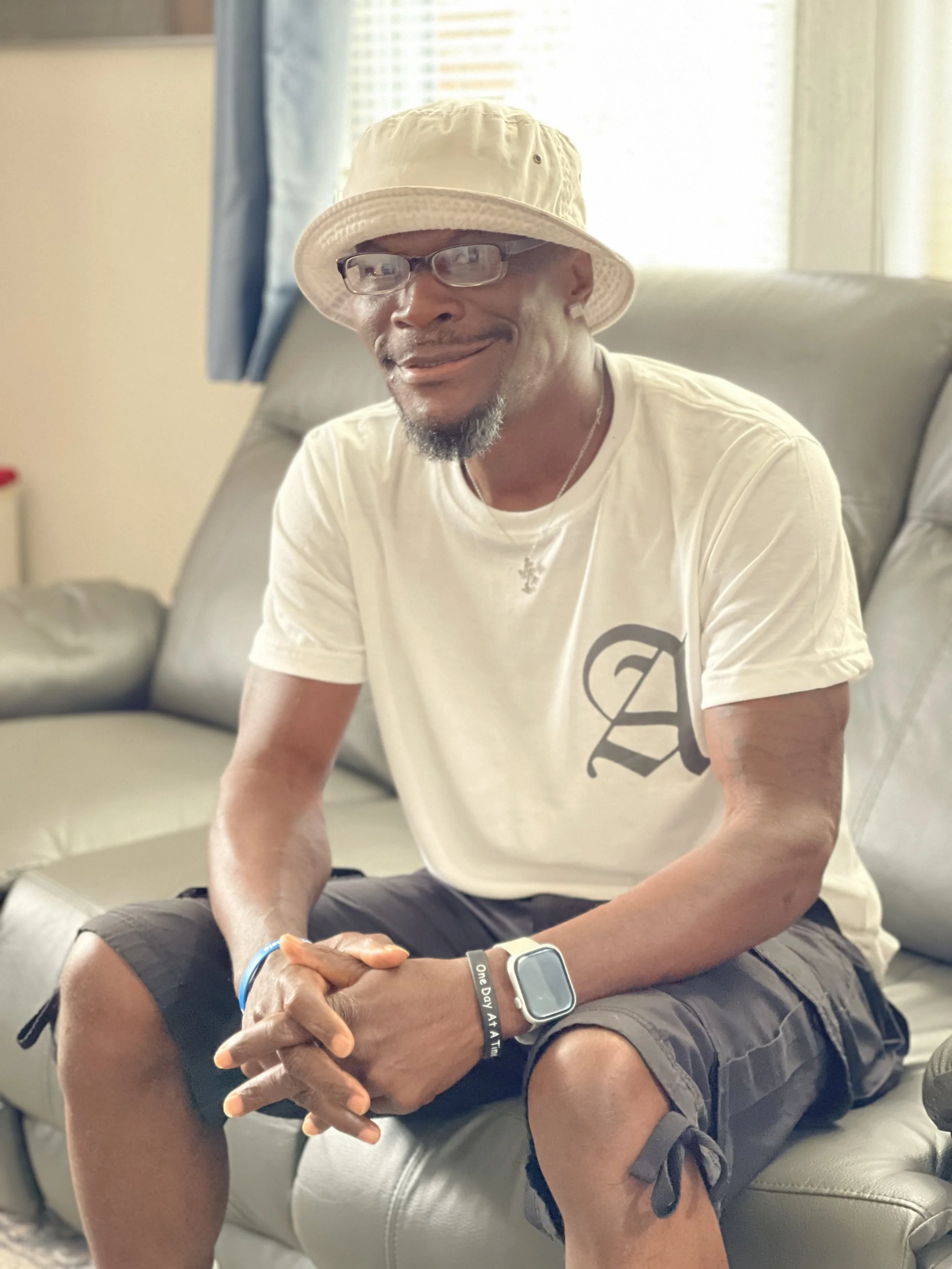Creative Solutions, Real Results: How Two Pilot Programs Are Transforming Permanent Supportive Housing in DC
Forget Silicon Valley — some of the most transformative innovations today are coming from an unexpected source: nonprofit organizations working to end homelessness in Washington, DC.
Earlier this year, the Partnership to End Homelessness launched the DC PSH Innovation Lab with generous funding support from The Morris and Gwendolyn Cafritz Foundation. The Innovation Lab is proving that when you pair imagination with investment – and partner closely with the people doing the work on the ground – you can spark real transformation for both frontline staff and the individuals they serve.
Why Innovation Matters in Permanent Supportive Housing
Permanent Supportive Housing (PSH) is a proven, effective model that brings together affordable housing and wraparound support for people facing chronic homelessness. But PSH providers face growing pressures, including increasing administrative demands that take time away from client work, staff burnout, and staff turnover. The result: disrupted services for clients, decreased client motivation and engagement, and increased threats to client stability and to our city’s ability to solve homelessness.
The DC PSH Innovation Lab was designed to tackle these challenges head-on by funding pilot projects to test possible solutions that, if successful, could be scaled across DC’s homeless services system.
After just a few months of implementation, the two Innovation Lab pilots that received grant funding from the Partnership are already showing great promise.
Leveraging AI to Support Case Managers and Increase Client Engagement
What if artificial intelligence could help case managers spend less time on paperwork and more time with the people they serve?
Pathways to Housing DC and Woodley House are piloting the implementation of AI to do just that. The organizations have adopted Eleos AI, a technology platform that helps case managers create compliant, high-quality clinical notes more efficiently. The impact has been immediate and measurable:
Nearly 87% of trained staff are actively using the new technology, with adoption rates that far exceed typical rates for a new tool.
Over 150 hours of staff time have been saved in just three months at Woodley House alone.
One clinical supervisor at Pathways to Housing reports that the time she spends reviewing case manager notes has been cut in half.
A Pathways to Housing case manager rescinded her resignation after discussions about how Eleos could help her spend more time with her clients.
Staff members are also sharing positive feedback. Kenyatte, a case manager at Woodley House, said: "Eleos makes me happy to do my notes now. I don't feel overwhelmed anymore." Kenyatte went from seeing three clients a day to five or six—a direct impact on the people she serves.
The team is now beginning to look at the organizational impact more closely. They are collecting more data on how the use of AI is impacting their ability to recruit and retain staff. They are also investigating the impact of AI on their ability to generate additional revenue through Medicaid billing, which depends on the timely submission of compliant case management notes.
Incentivizing Clients to Achieve Life Goals
What if strategic financial incentives could help motivate residents to not just survive, but thrive?
Edgewood/Brookland Family Support Collaborative is testing this theory through its Stable Steps Incentive Program. Stable Steps offers monthly stipends to PSH residents who successfully set and meet their case plan goals. These goals go beyond housing stability – clients set personal and meaningful goals to improve their physical health, mental health, employment status, family functioning, and engagement in the community.
Participation in Stable Steps is completely voluntary. For those residents who do take part, the early results are inspiring. By combining financial incentives with personalized goal setting, the program is helping participants find new motivation, re-engage with services, and improve their well-being. One resident who had been hesitant to seek mental health care now proudly includes it in his plan and is taking active steps toward his wellness goals. Another, a parent of two, says the program is not only motivating her to reach her goals, but is also giving her the freedom to create joyful memories with her kids through movie nights and dinners out -- experiences that were once out of her financial reach.
The benefits of the pilot extend beyond participants themselves. Case managers report that the program is helping them refine their skills and deepen their practice. They’re building stronger, more collaborative relationships with clients, becoming more confident in supporting goal setting and progress tracking, and using data in new ways to measure — and amplify — the difference their work makes.
Looking Ahead: From Completed Pilots to Long-Term System Change
In just the first six months of the pilots, our grantees have reported:
Improved staff satisfaction and retention by reducing administrative burdens
More efficient service delivery that allows case managers to serve more clients
Increased resident engagement through creative incentive structures
Measurable time savings that translate to more direct client contact
Over the next six months, the grantees will continue the pilots, refining their approach:
The Pathways to Housing and Woodley House pilot team plans to increase their use of Eleos AI to take advantage of its listening and note-generation capabilities, which they hope will allow their case managers to focus on being more present with their clients in meetings – improving client/case manager relationships and as a result, improving client outcomes.
The Edgewood/Brookland Family Support Collaborative plans to continue to enroll new participants in the Stable Steps program and to invite more residents to join the new Resident Council it launched in conjunction with the pilot, which gives residents an active voice in shaping program improvements.
Our partner, the Corporation for Supportive Housing (CSH), has been providing ongoing technical assistance to the grantees and will conduct a final evaluation of the pilots in mid-2026. The Partnership will share these results with the community and hopes to engage other funders to help sustain and scale successful innovations across the entire PSH system.
How You Can Support This Work
The DC PSH Innovation Lab demonstrates what's possible when funders are willing to invest in creative solutions and give providers the space to innovate. But this work requires sustained support.
Your investment in the Partnership to End Homelessness supports:
Strategic grantmaking that addresses real system challenges
Technical assistance and coordination that helps providers succeed
Evaluation and documentation that builds the case for scaling successful innovations
Convening and partnership-building across the homeless services system
DC is positioned to become the first major city to end chronic homelessness. Innovations like these—tested, measured, and scaled—are how we'll get there.
Ready to be part of the solution? Support the Partnership to End Homelessness and our Innovation Lab work.
The DC PSH Innovation Lab is supported by the Greater Washington Community Foundation's Partnership to End Homelessness and the Morris and Gwendolyn Cafritz Foundation.





